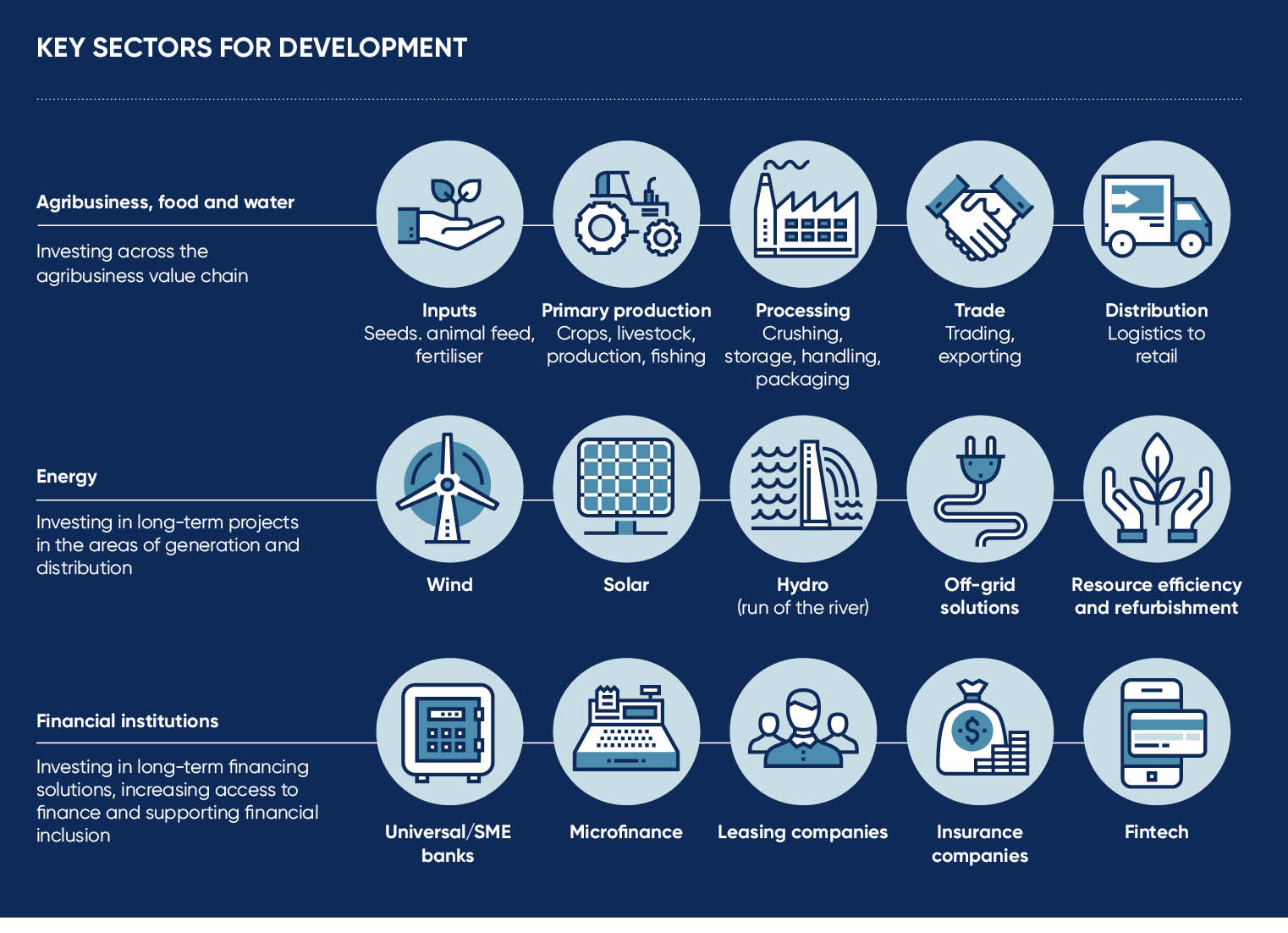Impact investing, combining finance with sustainability, has been around since the 1940s, but in the last few years demand has strengthened as the environment reaches a crunch point. Policy-makers are now piling pressure on the private sector and the desire for positive investments is reaching a peak.
Some $22 billion was invested last year in impact projects, according to the Global Impact Investing Network. Ninety one per cent of last year’s projects equalled or bettered expected financial returns, and European development banks alone calculate that in a year they created four million jobs and $11 billion in local tax revenue.
Impact investing is paving the way by allowing investors to change their behaviour. They are collaborating with fast-growing partners for a two-way gain and playing an essential part in supporting local sustainable development goals.
So far, investors have made a near-even split of equity and loan investments, and the big focus has been in finance and infrastructure, as well as manufacturing, and agricultural and service businesses, according to the Association of European Development Finance Institutions.
Impact investing’s model is different from other sources of finance. “Impact investment banks will push capital into places where traditional investors have found it difficult, paving the way for future growth. We can open up markets for investors and for our commercial banking partners, while helping local businesses and their communities to prosper,” says Jürgen Rigterink, chief executive at Dutch development bank FMO. “As well as our expectation of healthy returns, we have an equally clear demand for sustainability and social development.”
Money invested in this way is typically profitable. “Investors want to see their money grow and our experience shows financial returns go hand in hand with impact,” Mr Rigterink says, adding that development banks analyse, reduce and somewhat shoulder the risk. “They also can be assured they are aiding environmental and social development.”
FMO is among the banks most experienced in this area, operating for almost 50 years, providing capital, knowledge and networks to responsible businesses. The Dutch firm handles approximately $10 billion of assets in more than 80 countries, and works strictly within the well-established equator principles and World Bank International Finance Corporation performance standards, which stipulate high environmental and social requirements.
On the ground, its impact improvements include everything from cutting emissions, better use of resources and improving energy access to reductions in inequality and unemployment. Results of the investments in local prosperity are analysed and reported in terms of job generation and energy efficiency, often with the assistance of big data, to ensure impact is measurable and visible.
We have to stop unsustainably overloading the planet; the Earth has reached a tipping point
In an age where local and global environments face unprecedented challenges, there can be no denying the urgency of private sector impact investments. “We have to stop unsustainably overloading the planet; the Earth has reached a tipping point. Businesses, governments and individual investors now think about how to be a force for good and not only mitigate the bad,” says Mr Rigterink. “This approach, combined with well-judged investments, ensures a hugely positive, much-needed impact.”
He maintains that the traditional banking model “is disappearing fast” for investors, as more banks take the opportunity to join the movement. “Even though development banks have been in the lead, established commercial banks are now moving fast on the impact investment continuum,” Mr Rigterink notes. “And for the firms invested in, by increasing their value, we can save costs, raise productivity, improve risk management, enhance access to markets and cut the environmental footprint.”
As businesses, investors, their partners and governments increasingly recognise the growing urgency for change, impact investment has built an unstoppable momentum. The opportunity to generate reliable profits in the long term, while helping local people, their economies and environments, is unmissable.
To find out more about impact investing and how FMO can help please visit www.fmo.nl

